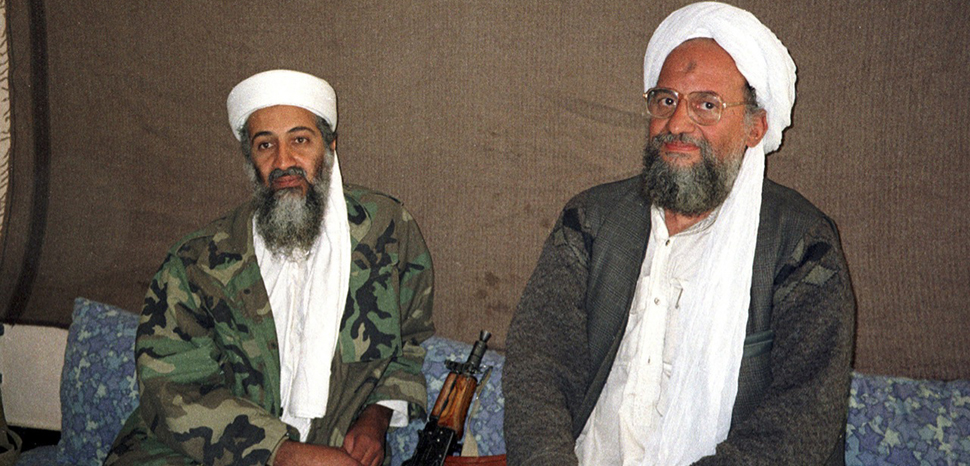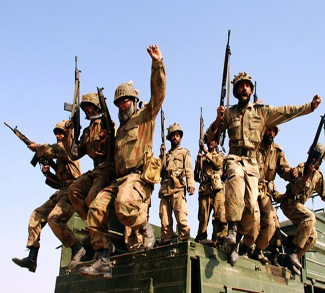On August 15 of last year, when the US forces officially withdrew from Afghanistan and handed over the reins of this war-torn country to the Taliban, it appeared that the Biden administration had decided to abandon the Central Asian region as a low strategic interest territory. With virtual non-existence in Iran and adjoining Central Asian states that have closer ties with Moscow, and increasingly clotted relationship with Pakistan, for the last year, the US presence in the area had been withering away. There was a feeling that US President Joe Biden, who was considered a significant opponent of investing in US counterinsurgency plans in Afghanistan during his tenure as vice president, was implementing a complete disengagement strategy in the region in favor of other more “glamorous” issues like the simmering Ukraine crisis and escalating tensions across the Taiwan Strait, which both have more potential to stimulate approval ratings and expand Democrats’ vote bank in the forthcoming mid-term polls in November. But his tweet on the August 1 morning about the killing of one of the world’s most wanted people, Al Qaeda chief Ayman-al-Zawahiri, unsettled this equation. Zawahiri’s death via drone strike confirmed one thing: contrary to the earlier perception of shrinking US interest in Afghanistan, the White House’s umbilical cord with this region is still very much intact and the Americans are not ready to completely vacate and thus create the potential for Chinese influence to move into the vacuum.
The Zawahiri episode has given birth to many picking questions about different dimensions of US long- and short-term strategy for the region, which has extremely close physically proximity to China and is also the starting point of the Belt and Road Initiative (BRI). Though Zawahiri was more of a ceremonial head of Al Qaeda, which has also been mostly operating as a placid group in recent years, the US State Department issued a warning about the possibility of Al Qaeda resorting to terrorist activities to avenge Zawahiri’s death in the near future. The chances of such attacks remain slim. Ever since the killing of Osama bin Ladin in 2011, Al Qaeda has been seriously subdued and very few instances of terrorism have been attributed to the group. Two factors explain this apparent tranquility: 1) Zawahiri was not as hawkish and lacked the military acumen of his former boss necessary for a guerilla war; and 2) Al Qaeda has failed to attract new recruits after the removal of the influential and charismatic figure of Bin Ladin. At present, Al Qaeda does not seem to be in a position to launch a major ‘’revenge” terrorist strike against the US; however, with the arrival of new leader with a different outlook, Al Qaeda may try to re-organize itself into a more violent outfit in an attempt to recapture its lost stature as world’s most dangerous terrorist organization.
The drone attack in the heart of Kabul to kill Zawahiri is a clear violation of the Doha Agreement between the Taliban and the US government, but US Secretary of State Anthony Blinken has countered that the Taliban also grossly violated the Doha Agreement by sheltering Zawahiri in the first place. The Americans had long accused the Taliban of protecting and harboring Zawahiri – a claim that was categorically denied by the Taliban regime. The fact is that nobody has confirmation about the death of Zawahiri, and many residents of Kabul are still considering it a hoax. US officials claim that they have “visual confirmation” of his death but understandably lack DNA proof. Nonetheless, the US has found a pretext to rekindle its involvement in Afghanistan and even abolish the Doha Agreement at some point in the future. For obvious reasons, the tension between the Taliban and Washington will now be further aggravated after this new twist, and there is a risk that this could compound the food and humanitarian crisis in Afghanistan, which continues to hinge upon the release of $9.6 billion of Afghan government funds frozen by the US Treasury since last August.
There is no doubt that in recent years China has silently assumed the role of a big brother in Afghanistan. To the utter disdain of the US, the fingerprints of Beijing are becoming quite visible in infrastructure development in particular. This is what most American think-tanks had been predicting for the past one decade. But the irony is that, despite all their attempts to keep the Chinese out of the Afghanistan theatre, Beijing has been quite successful in carving out a tangible role there. Beijing is not destined to swiftly replace Washington as the chief patron of the Taliban government, and it has yet to extend diplomatic recognition to the regime. Afghanistan is certainly a minefield and, it seems, China is not yet completely comfortable with its current rulers. The major strategic compulsion that has pushed China to indulge in the Afghan imbroglio is the BRI, which is perhaps the most vital part of President Xi Jinping’s Vision 2050, and President Xi is eager to ensure that the BRI is executed without any impediments. Continuous instability in the vicinity of the BRI is likely to hamper this ambitious project. China is keen to ensure that the peace and stability is realized in Afghanistan, owing to its closeness to the China Pakistan Economic Corridor (CPEC), which in turn is the most crucial component of the BRI..”
Apart from impacting the Sino-US rivalry in Afghanistan, the Zawahiri killing represents a massive setback for the Taliban, Al Qaeda, and their mutual relationship. There is no doubt that the Taliban are the biggest loser in this episode: their relations with both Washington and Al Qaeda are damaged, and their aspiration for international recognition has also been dashed for the time being. Following the departure of US forces, Al Qaeda was enjoying freedom in Afghanistan, and it was slowly trying to regenerate thanks to cordial relations with the Taliban. The group celebrated the Taliban’s return to power as if it was its own victory. However, the assassination of Zawahiri has created a deep wedge in their mutual trust. Al Qaeda leadership is yet to announce the successor of Zawahiri, but it has not yet done so because now it feels itself “unsafe and insecure” under the Taliban in Afghanistan. Although both key contenders to replace Zawahiri – his Egyptian deputy Saif al-Adel and his Moroccan-born son-in-law and media operations head Abd al-Rehman al-Maghribi – are living in Iran and have so far desisted from openly discussing his succession. Probably they are looking for a “safe” territory before assuming the top position in Al Qaeda. On the other hand, in addition to irreversibly damaging their ties with Al Qaeda, the Taliban are also facing intensified rifts and debate between the relatively pragmatic group that wants to keep themselves away from Al Qaeda and the hawkish and hardline groups like the Haqqani Network who are insisting on supporting and harboring their “ideological brothers.”
Nonetheless, the Taliban are facing a major dilemma. They don’t have money to pre-empt the simmering humanitarian and food crisis in Afghanistan, which will not only have deep socio-economic impact on the inhabitants of this war-torn country, but also may weaken Taliban control due to their inability to find a solution for this catastrophic food crisis. Thus, it appears as though the Zawahiri episode has catapulted the Taliban and Afghanistan toward more uncertainty and instability.
The views expressed in this article belong to the authors alone and do not necessarily reflect those of Geopoliticalmonitor.com




